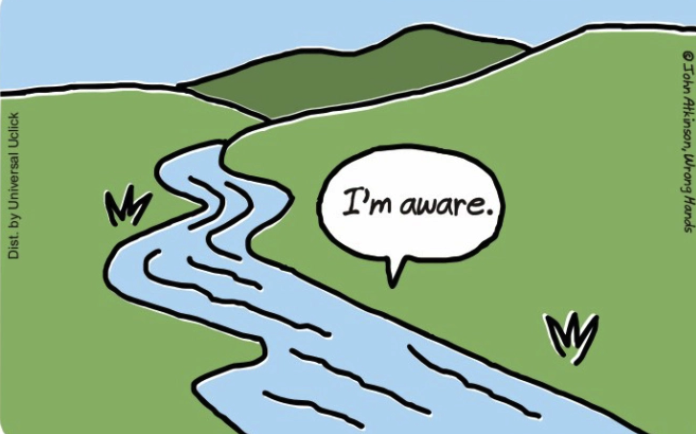Tralalero Tralala, Tung Tung Tung Sahur, 6-7, Skibidi Toilet, Fanum Tax.
A couple months ago, my Instagram feed was bombarded with a flood of Gen Alpha Reels, a cultural phenomenon known as “brain rot”.
The usage of the term brain rot increased by 230 percent between 2023 and 2024, according to the makers of the Oxford English Dictionary. In fact, this term was so popular in 2024 that Oxford University Press named it Word of the Year. What does it mean, you ask? The Oxford University Press defines brain rot as the “supposed deterioration of a person’s mental or intellectual state, especially viewed as a result of overconsumption of material (now particularly online content) considered to be trivial or unchallenging.”
Flashback to May 2025. It was during this time, after I finished my exams, that I realized how my potential could be dwindling as a result of consuming prolific amounts of brain rot through Instagram Reels. So, once summer break started, I decided to delete Instagram. It turned out to be a tough journey, but one that I’m especially proud of.
The first week was brutal. Every single time that I picked up my phone, whether that be after a tough swim practice or piano lesson, I would click on the same spot that the Instagram logo used to be, only to realize that it was no longer there. The fact that I had developed such muscle memory led me to realize just how much I’d grown attached to social media.
After about a month, I no longer felt the urge to check my phone whenever I had spare time. I no longer felt the urge to check social media, and I discovered that I was able to concentrate for longer periods of time. Readings that used to take an hour to complete took only thirty minutes. Piano practice sessions that used to last thirty minutes could last up to an hour and a half.
I even began to notice that I became more passionate and attached to my extracurricular activities.
During my freshman and sophomore years, when I used social media profusely, the constant release of dopamine (“feel good” neurological chemicals) and the pleasures of short-form content caused the erosion of my ability to tolerate challenging situations and adversity. Before swim practices, I always felt nervous and apprehensive. And whenever the physical pain of swimming drove me out of my comfort zone, I would quit the set instantly. Additionally, I commonly made the excuse that I “needed to use the restroom” when in actuality I was just stalling in the locker room. Though I cannot entirely blame my use of social media for my poor athletic performance, reflecting back, I believe that my consistent use of social media and my immaturity back then definitely took a toll on my ability to stay disciplined. In contrast, swim practices over summer break without social media were great. I discovered that whenever I reached the point of physical exhaustion and discomfort that I previously succumbed to, I was able to endure and tolerate through the pain to eventually overcome it. Not only did my faster times during meets reflect my progress, but even I grew more passionate towards the sport, treating it as a way to better myself as a person.
Due to my lack of consumption of social media and short-term content, I gradually was able to achieve more than I previously could have. What I discovered through my detachment from social media and short-form content this summer was that my ability to focus for long periods of time and my endurance capabilities, whether that be physical or mental, improved drastically.
Nevertheless, I believe that social media has a positive side. For ordinary people like you and me, apps such as Instagram or TikTok serve as platforms where we can express our voices and creativity, as well as access news. For content creators and businesses, social media provides a means of earning income, building and promoting a brand, and connecting with diverse audiences. In this sense, social media is truly an expansive digital world.
That said, I urge you to take a step back from and reconsider your own relationship with social media. While it is a great tool for connection, creativity, and opportunity, its addictive nature often erodes our discipline, focus, and resilience. My summer detached from Instagram taught me that oftentimes, we are able to grow and reach much greater heights when we detach ourselves from the digital world and immerse ourselves in the real world. Even if you don’t delete social media entirely, try setting boundaries because you will surprise yourself by how much more present and fulfilled you feel.
Edited by Ethan Zhou



